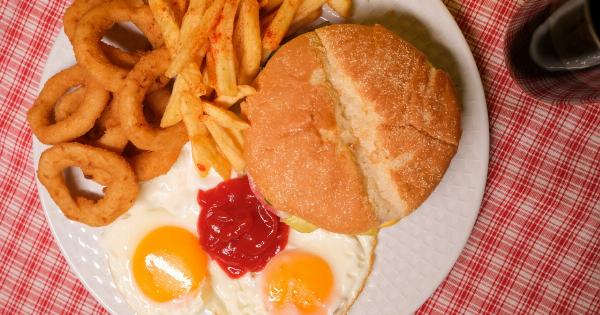Soft drinks are very popular, particularly among younger generations and are consumed in large quantities worldwide.
There has been a lot of debate in recent years about the effects of sugary soft drinks on our health, especially when it comes to increasing the risk of developing bowel cancer. This article will cover the different aspects of how soft drinks can impact our bowel health, contributing to an increased bowel cancer risk.
What are soft drinks?
Soft drinks are defined as non-alcoholic carbonated beverages that may contain sugar, artificial sweeteners, caffeine, and a variety of other chemicals or compounds.
Soft drinks come in different flavors but are highly known for their sweet, refreshing taste. Most soft drinks contain a high quantity of sugar which can have adverse effects on our health. Overconsumption of soft drinks has been linked with several lifestyle diseases, such as obesity and type 2 diabetes.
Bowel cancer and its causes
Bowel cancer occurs when cells in the lining of the large intestine develop abnormal growth and divide uncontrollably to form tumors.
The exact causes are not yet known, but medical researchers have found several factors that contribute to the development of bowel cancer, including a high-fat diet, low fiber consumption, genetics, and unhealthy lifestyle choices.
Soft drinks and bowel cancer risk
Several studies have shown a positive correlation between soft drink consumption and a higher risk of developing bowel cancer.
A study conducted in Sweden in 2013 found that consuming two or more soft drinks per day could increase the risk of developing bowel cancer by 30%. This study concluded that regular intake of high sugar soft drinks was most likely to contribute to such risks.
Another 2015 study, carried out by the World Cancer Research Fund (WCRF), found that consuming soft drinks and other sugary beverages was associated with an increased risk of developing bowel cancer.
This study found that drinking two or more glasses of such drinks per day increased the risk of developing bowel cancer by up to 18%.
Chemical compounds in soft drinks that impact bowel health
Several chemical compounds in soft drinks can cause damage to the lining of our bowels that could result in cancer. These compounds include:.
1. Sugar
Most soft drinks contain high amounts of sugar. The high sugar levels in these drinks cause insulin resistance in the body, which leads to inflammation of the bowels and damages the lining of the large intestine.
2. Phosphoric acid
Phosphoric acid is another component found in almost all soft drinks, and it can cause severe harm to our bowels. In combination with sugar, it can cause a reduction in calcification of the bones, leading to weak bone density.
It also contributes to the formation of kidney stones by increasing the acid levels in the body. Furthermore, the phosphoric acid stimulates the growth of harmful gut bacteria that tend to lead to the formation of cancerous tumors in the gastro-intestinal tract.
3. Caffeine
Caffeine found in popular soft drinks can also be linked to colorectal cancer. A Korean study conducted in 2015 found that high caffeine intake from soft drinks was associated with an increased risk of developing bowel cancer.
4. Artificial sweeteners
Artificial sweeteners are commonly used in low calorie and diet soft drinks. These sweeteners are associated with several health problems, including an increased risk of bowel cancer.
A study conducted in Israel in 2014 found that consuming diet drinks increased the risk of developing bowel cancer by six times when compared to people who did not consume such drinks.
Conclusion
Soft drinks have become a popular indulgence for many people worldwide, however, the high sugar, and other chemical components in them can cause cancer and several other health problems.
Therefore, it’s important to switch towards a healthier option such as fresh juices, sparkling water or herbal teas.
In the end, moderation is key, because a single glass is not going to cause major health disruptions but if you consume more than 1 glass of a soft drink a day, over time, it could cause significant damage to your gut and lead to a higher risk of bowel cancer.





























